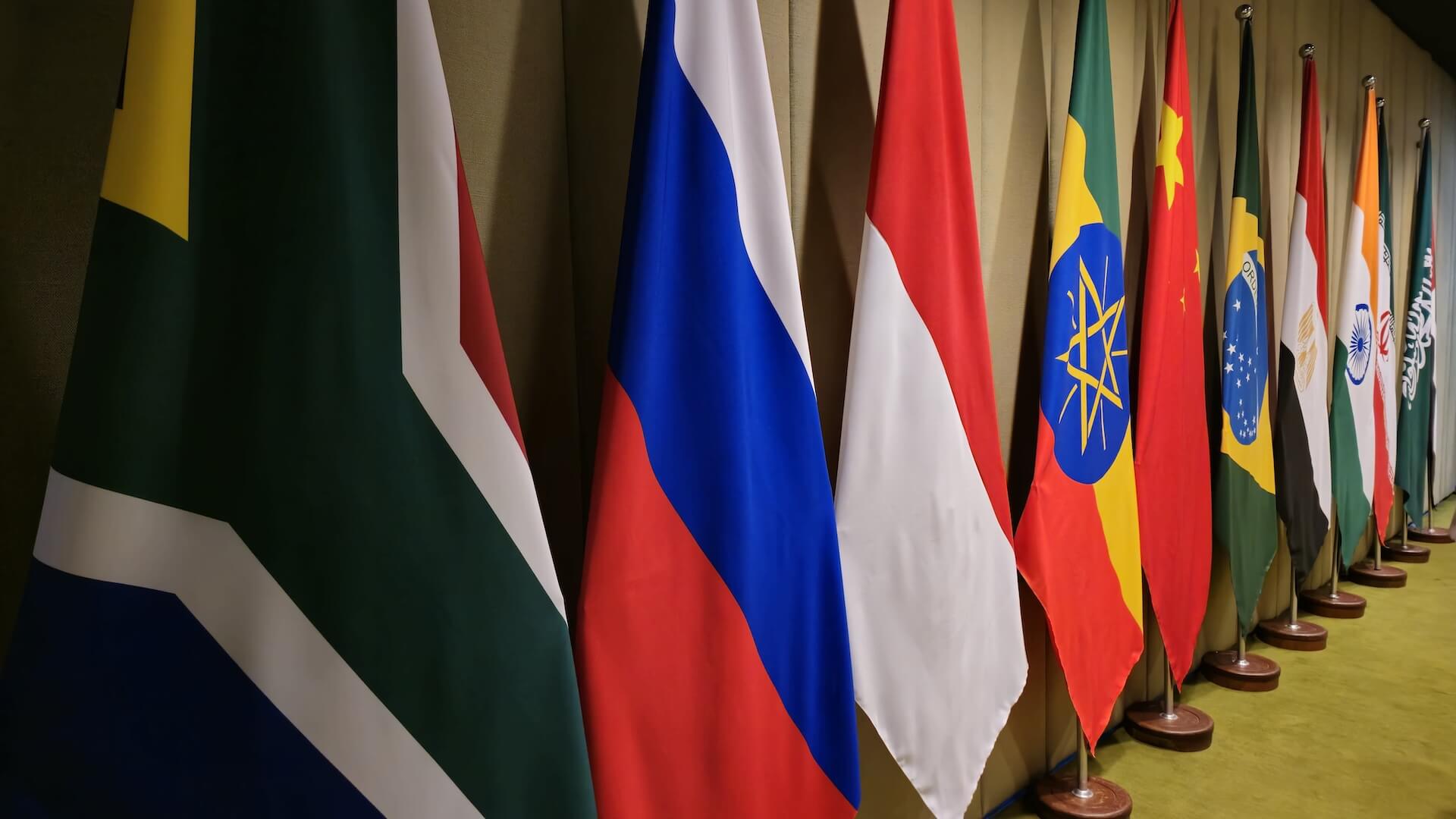Chasing Shadows: How MAGA’s BRICS Fixation Exposes Strategic Blindness
The announcement came with typical Trumpian bombast: any nation daring to join the BRICS alliance would face punitive 10% tariffs across all trade with the United States. Never mind that BRICS—that loose confederation of Brazil, Russia, India, China, and South Africa—barely qualifies as an organization, let alone a coherent threat to American hegemony. What’s troubling isn’t just the policy itself, but what it reveals about the fundamental misunderstanding driving Trump’s approach to international relations.
You get the sense that somewhere in the bowels of Mar-a-Lago, someone handed Trump a briefing paper about BRICS and he saw exactly what he wanted to see: a shadowy cabal of anti-American forces plotting to overthrow the dollar-dominated world order. The reality, frankly, couldn’t be more different. BRICS began life as nothing more than a Goldman Sachs marketing gimmick—a way for bond traders to package emerging market debt from countries that happened to share similar growth trajectories. The geopolitical pretensions came later, and they’ve been largely unsuccessful.
Consider the absurdity of the current moment. The most recent BRICS summit played out like a diplomatic farce, with China’s leadership conspicuously absent and Vladimir Putin unable to attend for fear of arrest on war crimes charges. When your alliance’s key figures can’t even show up to their own meetings, you’re not exactly projecting strength on the world stage. Yet this is the organization that has somehow captured the imagination of American policymakers as an existential threat.
The membership roster alone should dispel any notion of BRICS as a unified force. India and China maintain one of the world’s most militarized borders, regularly engaging in deadly skirmishes that would make cooperation on anything substantive nearly impossible. Saudi Arabia and Iran—both recent additions to the group—represent opposing poles of Middle Eastern geopolitics, locked in a cold war that has devastated Yemen and destabilized the region for decades. Pakistan and India bringing their decades-old Kashmir dispute to the same table? It’s almost comical.
What we’re witnessing isn’t serious statecraft but political theater designed to appeal to a particular strain of American anxieties. The MAGA movement has always thrived on the narrative of American decline, the idea that shadowy foreign forces are working to undermine our global position. BRICS, with its exotic acronym and membership of non-Western powers, fits perfectly into this paranoid worldview. It doesn’t matter that the organization lacks any meaningful institutional capacity or that its members can barely agree on lunch, let alone a new international monetary system.
The real tell came during the Johannesburg summit, when finance ministers from China, India, and South Africa felt compelled to explicitly state they had no interest in creating a BRICS currency or challenging the dollar’s dominance. These weren’t private assurances whispered in diplomatic cables—they were public declarations designed to quash speculation about the group’s ambitions. When your supposed anti-American alliance is actively denying any intention to challenge American power, you might be dealing with something less than a mortal threat.
But Trump’s tariff threat reveals something far more concerning than simple misunderstanding of international relations. It exposes how completely economic policy has become subordinated to political posturing. Tariffs, once a tool of economic statecraft used to protect domestic industries or pressure specific trading partners, have become Trump’s hammer for every conceivable nail. Foreign policy challenges, immigration concerns, political grievances—everything gets filtered through the lens of trade restrictions.
This represents a dangerous narrowing of American diplomatic tools. When every international relationship becomes transactional, when every global challenge gets reduced to a trade dispute, we lose the ability to engage with the world’s complexity. The Constitution explicitly grants Congress authority over tariffs precisely because the founders understood their economic and political significance. By treating them as presidential prerogatives to be deployed at will, Trump is not just exceeding his constitutional authority—he’s undermining the careful balance that has governed American trade policy for centuries.
The ultimate irony, of course, is that the one BRICS member genuinely interested in challenging American global leadership is Russia—the same country that enjoys a curiously exempted status in Trump’s worldview. While Putin’s regime has consistently pushed for alternatives to dollar-dominated trade and actively works to undermine Western institutions, it somehow escapes the harsh rhetoric reserved for Brazil or India. This glaring inconsistency reveals the extent to which personal relationships and political calculations have corrupted what should be clear-eyed strategic thinking.
The broader implications extend far beyond trade policy. When American leaders become fixated on phantom threats while ignoring real ones, we create strategic blind spots that our adversaries can exploit. China’s actual challenge to American leadership—through technological innovation, infrastructure investment, and institutional influence—gets less attention than a talking shop that can’t even manage to hold successful meetings.
What we’re seeing is the logical conclusion of a foreign policy approach that prioritizes domestic political messaging over international effectiveness. The BRICS threat narrative plays well with voters who want to believe that American problems stem from foreign manipulation rather than domestic policy failures. It’s easier to blame a shadowy international alliance than to grapple with the complex challenges of maintaining American leadership in a multipolar world.
The real test will come when this theatrical approach to international relations meets actual crises. Tariffs might serve as effective political props, but they’re blunt instruments for addressing the nuanced challenges of 21st-century geopolitics. When every foreign policy tool becomes subordinated to trade restrictions, we lose the flexibility and sophistication that effective diplomacy requires.
Trump’s BRICS obsession ultimately reflects a deeper problem: the reduction of American foreign policy to a series of economic transactions divorced from strategic thinking. Until we can separate legitimate concerns about American competitiveness from paranoid fantasies about international conspiracies, we’ll continue to chase shadows while real challenges demand our attention. The world is complex enough without inventing new threats to worry about.
